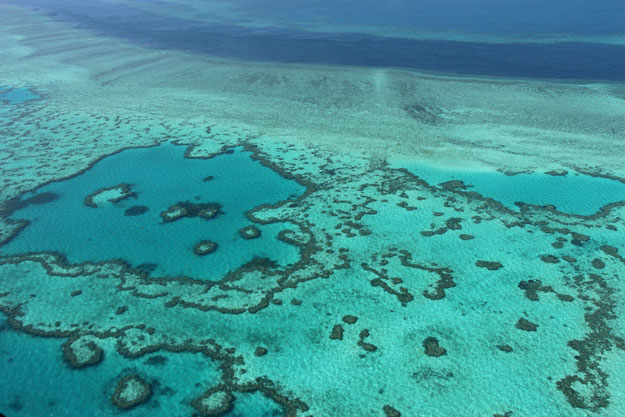
But while environment groups hailed the decision as another important step in the Aus$16.5-billion (US$12.2-billion) project's eventual demise, Indian firm Adani insisted it would go ahead.
"With the consent of the parties, the Federal Court has formally set aside the approval of the Carmichael Coal Mine and Rail Project," Australia's Environment Department said in a statement.
Environmental groups had challenged the government's approval of the mine on the basis of the enormous amount of greenhouse gases it would create, its impact on vulnerable species and Adani's "poor environmental record".
They also have protested against its impact on the Great Barrier Reef, one of the world's most bio diverse marine areas, because the coal would have to be shipped out of a nearby port, as well as the damage caused by climate change.
The court did not publish its findings but the Environment Department said the decision was made because there was a possibility the advice it provided to Environment Minister Greg Hunt before he made his decision did not meet all technical requirements.
"This is a technical, administrative matter and to remove this doubt, the department has advised that the decision should be reconsidered," it said.
"Reconsidering the decision does not require revisiting the entire approval process."
Sue Higginson, a lawyer for the Mackay Conservation Group which brought the legal challenge, said the court ruled on whether due consideration had been given to advice about two vulnerable reptiles — the lizard-like yakka skink and the ornamental snake.
Both are only found in Queensland, the state where the project would be located.
"The case also alleged that the minister failed to consider global greenhouse emissions from the burning of the coal, and Adani's environmental history, however these matters are left unresolved before the court," Higginson said.
The Environment Department said it expected it would take six to eight weeks to prepare new advice and supporting documentation and for Hunt to reconsider his decision.
The decision is the latest set-back for the controversial Adani mine and follows major European and US banks ruling themselves out of providing funds for parts of the development over environmental concerns.
The mine is estimated to provide electricity for up to 100 million people in India and generate thousands of Australian jobs.
But the development proposes massive open-cut and underground coal mining some 160 kilometres northwest of Clermont in central Queensland, as well as a 189-kilometre rail link.
It is forecast to produce 60 million tonnes of thermal coal a year for export, which environment groups say would create vast amounts of carbon emissions that are blamed for global warming.
Ellen Roberts, from the Mackay Conservation Group, said the decision paved the way for the government to overturn approval for the mine.
"It's obviously got a huge climate change impact, huge ground water impact. There are a number of threatened species... there are impacts on the Great Barrier Reef," Roberts told AFP.
Adani said it was committed to ensuring its mine, rail and port projects in Queensland were developed and operated in accordance with Australian laws, including strict environmental conditions.
"It is regrettable that a technical legal error from the Federal Environment Department has exposed the approval to an adverse decision," the company said in a statement.
"We have been advised that, because certain documents were not presented by the department in finalising the approval, it created a technical legal vulnerability that is better to address now."
Adani, which is in the fifth year of development and approvals for the massive project, said it was confident the conditions imposed on the original consent were robust and appropriate.































1714024018-0/ModiLara-(1)1714024018-0-270x192.webp)









COMMENTS
Comments are moderated and generally will be posted if they are on-topic and not abusive.
For more information, please see our Comments FAQ